Geoff Wilkinson on Narrowly Escaping Death, & Bringing Us3 Back to Life
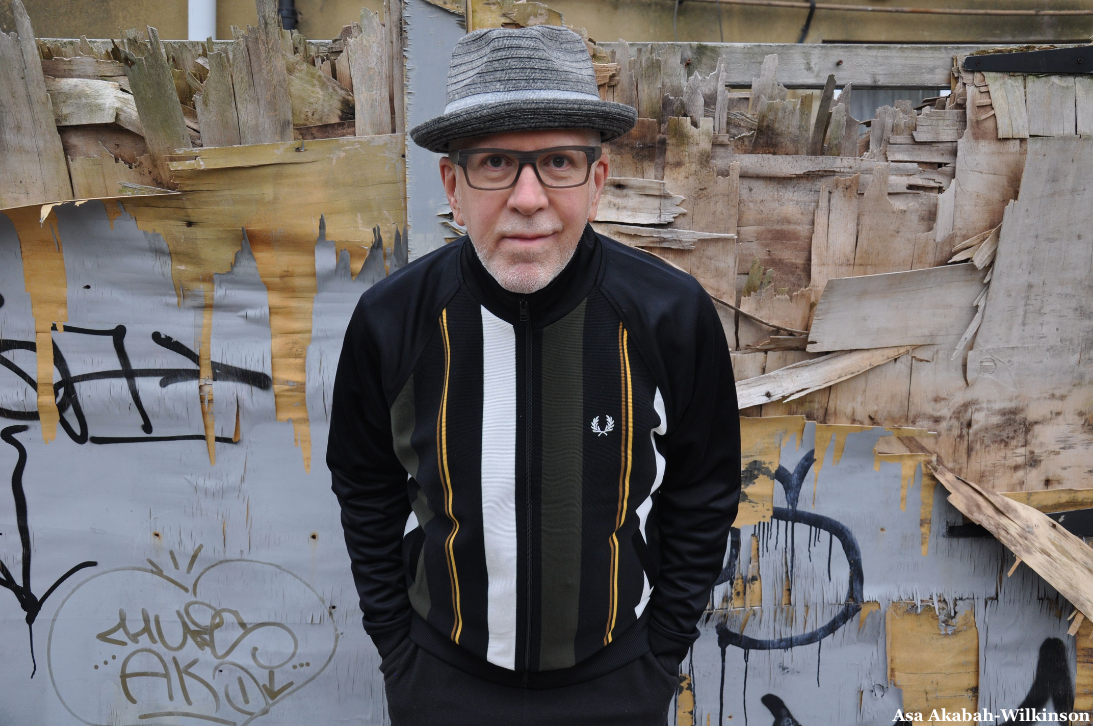
In April of 2014 Geoff Wilkinson thought he’d created his last Us3 album. Actually, he wasn’t thinking much about music at all, he was in a 48 hour medically induced coma while doctors were trying to figure out why his heart kept stopping.
Wilkinson had been rushed to the hospital after having a heart attack, and just a few days after having a stent inserted, while recuperating in his room at the medical facility, he went into cardiac arrest. He was shocked back to life, only to have to experience the cardiac arrest - defibrillator combination three more times.
After he was awoken from his medically induced coma he spent nearly four weeks in intensive care, and a defibrillator was inserted in his chest.
Music was the furthest thing from his mind, and when he finally arrived home he sold his equipment.
The itch to make music, however, came back, and over a decade after the last Us3 release Wilkinson is back with a new album titled Soundtrack, which will be released on August 22nd.
“This feels a bit more personal to me,” he says of the album, which is entirely instrumental with the exception of one song. “I don’t think there is anything that sounds like this out there, which to me was a good reason for putting it out, for doing it in the first place. If it sounds unique, I must be onto something with that, I think.”
The lead single from Soundtrack is the eerie, yet urgent “What Have We Done,” which was inspired by Wilkinson’s lifelong passion for environmentalism.
I caught up with Wilkinson to find out more about the album, as well as how he views both life, and music after everything he’s been through. He also discussed his dive into library music, the avenues it’s opened up for him, and the year he sold 200 tracks to various projects.
I want to say you had quite the health scare, but that undersells it. It was a series of cardiac events. You basically died four times, and were shocked back to life each time.
Yes. If any of those had happened outside of the hospital I wouldn’t be here.
Wow! So other than health-wise, in what ways do you live life, and view life differently now?
I think everything’s different now. I don’t know if you feel like that (as a cancer survivor).
It just makes you appreciate small things, and it also makes you kind of not sweat the small stuff. Things that might have irritated you before, just let it go.
It changes you fundamentally, I think.
Totally agree. Absolutely. I know after you finally arrived home from the hospital music took a back seat. What kind of feelings did you have selling all of your gear?
I thought I was done.
I knew that it was a fundamental change in my life, basically.
I used to rent a studio, which is only about a 15 minute walk from my house. It was in a complex with about 20 different rooms, so it was a good little community. I knew a lot of the people there, so that was a bit sad to leave, but I just thought that was the right thing to do.
At the time I didn’t know what had caused (the heart issue), because everything that they asked me in the hospital, and this really irritated me, as soon as they found out I was in the music business they kept asking me about coke. “Do you do cocaine?” I’ve never done coke in my life. I’m not a drug taker, but I must have been asked that about 10 different times. So there’s a cliche for you, that’s what the medical profession thinks of musicians.
I hadn’t eaten red meat since the ‘80s. I didn’t drink too much. I was reasonably healthy in a lot of ways. I didn't know at the time that there is a history of heart disease on my father’s side.
I had a bit of an odd relationship with my dad, to be honest. I’d actually asked him (if there were family related heart issues), and he’d said no. It was only at his funeral in 2017 that I asked his brother and sister, my uncle and auntie, and they said yes.
I never knew my granddad on my dad’s side. He died when I was about three or four, and he died in his early 50s from a heart attack, apparently. I didn’t really know that.
What would be the reason for your dad keeping that from you?
I have no idea. Maybe he thought that I would blame him, or something.
I mean, you’re not being protected by not knowing.
Exactly. I was really angry when I found out.
I don’t know if that would have made any material difference to the way I was treated, but it would have saved me a lot of grief in terms of being able to explain it to the medical professionals who were treating me.
And maybe you could have had screenings well in advance.
Yeah, exactly. The first thing I did was tell my brothers to go and get checked out, which they did.
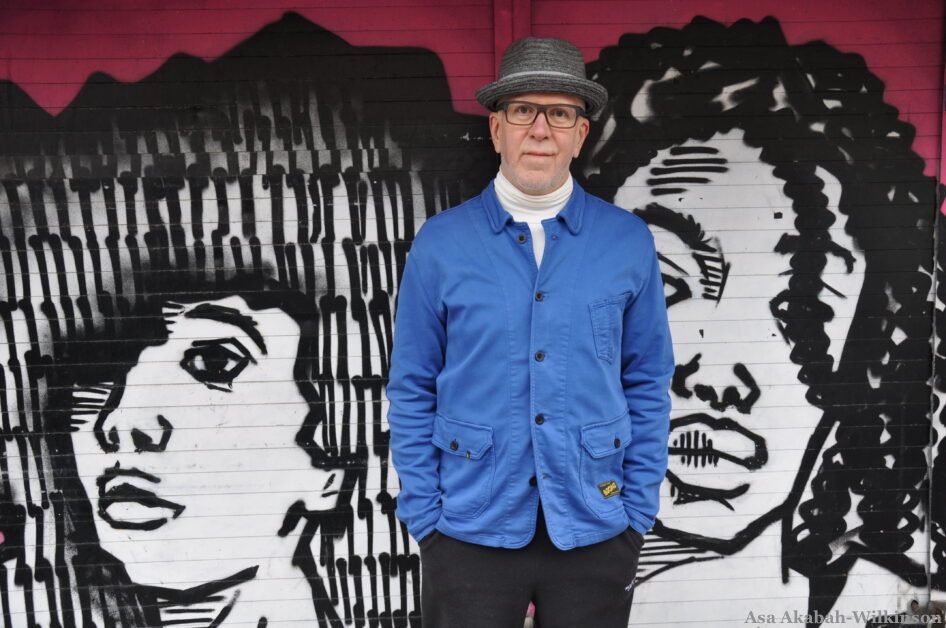
So you get home, you leave the studio, you get rid of all your equipment – how long after that did you get the itch to do music again, and what inspired that itch?
It was probably about six months.
I was enrolled in a cardiac rehabilitation course, and that made a real difference to me, both physically and mentally.
I don’t know if you were ever involved in a group in the rehab that you did (for cancer), but just meeting other people who’d been through similar experiences, and in many cases had even worse experiences than me – there they were, fit as a fiddle, running around the gym in a group. That was tremendously inspiring to me, because I thought, you know, hey, I can do this. I can get back to how I used to be, kind of. That was my mentality. I started thinking like that, and slowly, I did.
In December of 2014 I had the final meeting with my main cardiologist at University College Hospital in London. He basically shook hands with me and said, “You’re not a patient anymore. I’m discharging you as a patient,” and that was incredible.
That’s such a good feeling.
Yeah. That was on a Friday afternoon. On Monday morning I went back to the heart hospital where I was treated to say thank you to the people that had worked on me. I’m really glad I did that.
You mentioned being in the community space with everyone else who was in different stages of recovery. We’re often told in life to find our tribe, and we internalize that as finding people who are into the same stuff we’re into, but sometimes finding your tribe is a totally different thing.
Yeah, absolutely. I was doing the cardiac rehab course for nearly six years, right until COVID hit, and the gyms closed, so obviously the classes stopped.
Unfortunately, when everything reopened again, the classes weren’t funded anymore. They took it as an opportunity to cut the funding. So that was annoying, but I still kept in touch with quite a few people on the course, because I obviously made friends with them.
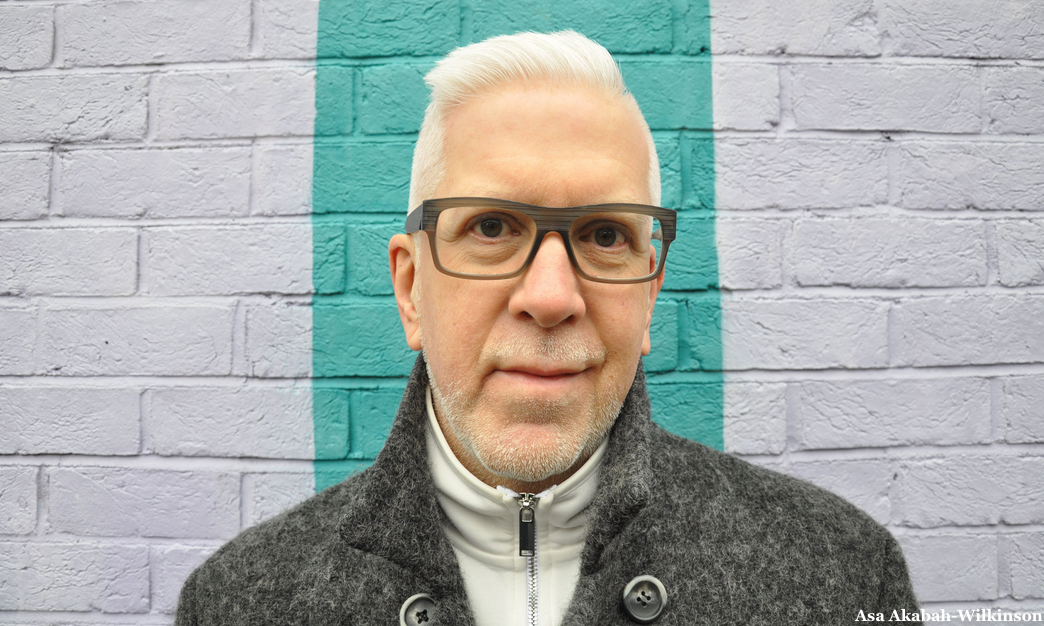
How long did it take for you to build your studio back up?
Well, I bought a new Mac mini, and installed Logic in it.
The engineer that I’ve been working with for ages, Rich (Boal), was actually teaching Logic at a place called Point Blank, and he helped me a lot in getting my head around the new version of that.
I put it in a spare bedroom in my house, and started fiddling about with it. Then I thought, it’s time to take the plunge and do this, really go for it.
I should mention that when I was in the studio before, in the block of studios, there was a guy in the room next door to me named Dave James, who was a pop producer. He produced multiple albums for Take That, and he’d done some pretty big pop stuff, but he got out of that, and he got into doing library music.
I didn’t really know what library music was when he was explaining it to me, and he said to me, “Your stuff would be perfect for library music.” This was in about 2008.
He introduced me to a couple of companies, and I did do a couple of albums. I’d done about three or four albums of library music before I got ill.
And for those who don’t know, library music is …?
It’s not for sale to the public. So it’s like a business to business thing. It’s mainly for use as background music for TV, films. It could be anything, corporate videos. It’s basically anything to put to picture.
It’s cheaper, obviously, for production companies to use library music rather than licensing well-known music, so you do get asked to do a lot of “sounds-like” stuff, but the fact that it’s not for sale to the public means that you don’t have to do any promotion, or any marketing, and the deals are just one-off deals, so you can work for lots of different companies at the same time.
After I’d decided to build a studio in my back garden, I started just doing library music, and that took off.
Obviously, “Cantaloop” was a brilliant calling card to library music companies.
I’ve worked for lots of different library music companies around the world, and worked in a lot of different genres, some stuff that you might be surprised at. I’ve done some electronic, Tangerine Dream-y type stuff. I’ve done banging house music. I’ve done chill hop stuff. I’ve done a lot of different stuff.
The real music industry, once you get known for doing something in one particular style, you often don’t get a chance to experiment in other genres. The fact that this stuff wasn’t going to be publicly scrutinized was a perfect chance to experiment in different genres for me, so I’ve had all kinds of different things signed.
To this day, I’ve had over a thousand library tracks signed.
So there’s a pretty good chance most of us have heard these sounds, we just don’t know it.
Yep. Without knowing.
The sounds we will know are from you will be coming from the upcoming Us3 album Soundtrack, which is due out August 22nd. Something that’s very different with this album from previous Us3 releases, and I’m guessing this comes from all your work in library music, is only one track features vocals. What went into the decision to make this a production-centric record?
I think 99% of the library music that I’ve been doing for the last seven years has been instrumental. Obviously, vocals kind of get in the way if something’s being used as background music.
And the Soundtrack album started not as an US3 album.
There’s a sax player I’ve worked with throughout Us3 named Ed Jones, who’s been in the band, and has played on all the Us3 albums, apart from the new one. We were once having a conversation on the tour bus a long time ago about how big bands were kind of not fashionable, so we decided to make a big band album with beats. We did it as a side project called ed/ge.
We had loads of people in the studio. It was quite fun doing that. It was about 2003, I think.
The album’s called A View From The ed/ge, and we did a cover version of a Gil Evans track on there, who was always my favorite arranger, because of the sort of individual style that he had.
I had started thinking about doing another ed/ge album, that’s how this started, and had a meeting with Ed about it, but he wanted to do something a bit different from what I wanted to do, so we just agreed to go our separate ways. He’s actually got a new project coming out later this summer.
Then I remembered that Mike Gorman, the keyboard player who I’ve, again, worked with extensively with Us3, both in the studio, and in the band, had played me some orchestral arrangements that he’d done for Kid Creole. Mike had his own big band album, but didn’t actually put anything out, so I asked him if he’d be up for doing some orchestrations, but I’d wanted to keep it to horns. I didn’t want to do anything with strings, and specifically wanted to do something in a sort of Gil Evans style. I hadn’t really heard anything like that for a long time.
I’d done several trap albums in terms of library music, and I just thought there was an opening there to do something that would sound genuinely different with trap beats, and lush orchestration, a lush horn section on top, so that’s what we did.
And you decided to record it under the Us3 name.
It was only after we’d recorded most of it, and I started thinking about releasing it … I started realizing, hey, if I was to start Us3 now, this is probably what it would sound like. So then I thought, actually, this is an Us3 album.
You had a very interesting collaborator for the music video for the album’s lead single, “What Have We Done,” because it was directed and edited by your daughter. How cool was it to work with her on a project?
She’s 22 now, and she graduated last year from Bournemouth University. She did a degree in film and TV production. So yeah, it was great.
She’s done four videos for me. The others are on their way.
Excellent, but that also means she was 11 when you were going through your heart issues. Oh my God!
Yeah, she was small. At first I wouldn’t let her come and see me because I didn’t want her to see me like that. It was a couple of weeks before I would.
What an incredible thing to now be able to work with her.
Yeah, it’s cool. She’s very talented in her own right.
With the album coming out in August, and after everything you’ve been through, how do you view music now in regards to its place in your life?
If anything, it got more intense when I recovered a bit, and started doing the library music, because then I kind of treated it as a job. I would work from 10 in the morning till six, five days a week, and just keep grinding it out.
When I was doing the Us3 stuff before, as a comparison as to how the music industry works, throughout the 20 years that Us3 existed in its first incarnation there was nine albums, so there’s less than 150 tracks. In the 10 years I’ve been doing library music I’ve signed, and had released, over 1000 tracks. It’s quite different. If you’re a prolific person it’s a fantastic outlet to get that creative urge out of you.
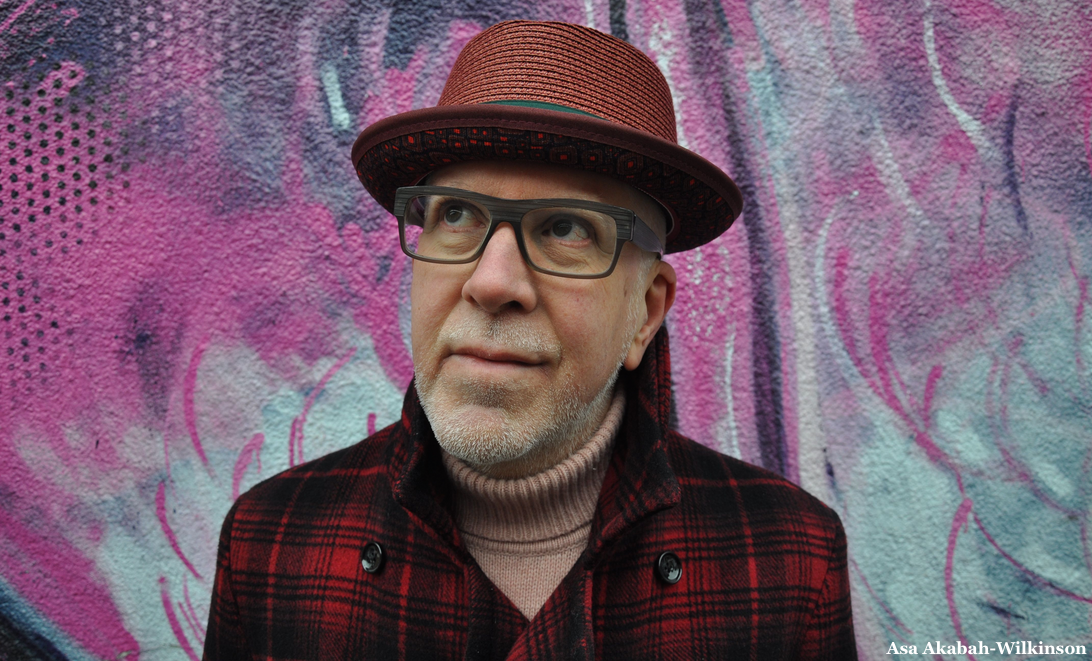
That’s a heck of a lot of music. Over 100 tracks per year!
There was one year that I had over 200 tracks signed. I just went bananas that year.
So in one year you had more tracks signed than the entirety of the Us3 catalog.
Yes, that’s true. I just got on a roll that year.
I used to work with this engineer who I mentioned named Rich. When COVID happened, his son was only about three, or four, and he wouldn’t come to the studio to mix anything then. Obviously, nobody knew what (COVID) really was then in early 2020. So I thought, OK, I’m just going to do this myself. I’ve been watching him, and using different plugins and stuff for a long time.
So I did it myself. I mixed an album myself, and the first company that I played it to, I got it signed straight away. So I thought, oh, that was good. I can do it. So I did another one, and the same thing happened.
So I’ve mixed and engineered everything that I’ve done since COVID.
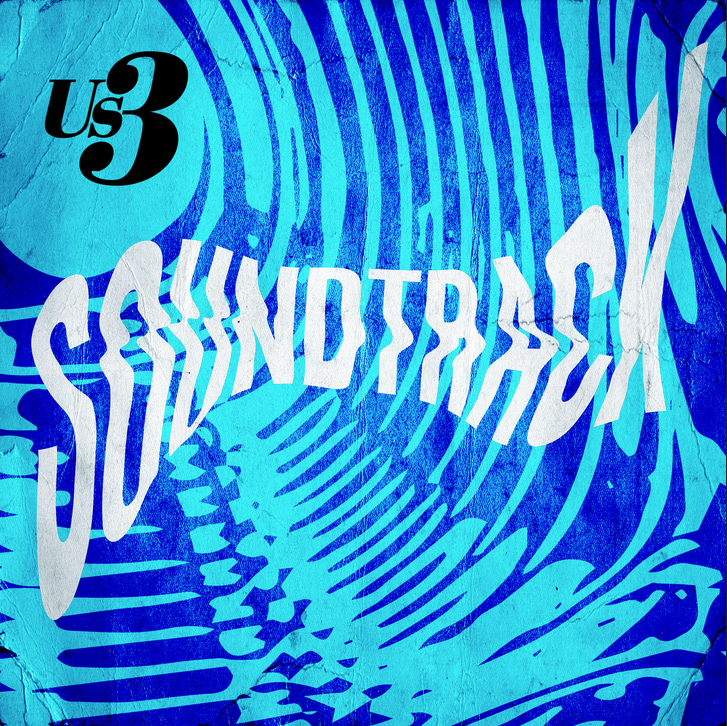
That’s amazing. Is there anything else you’d like to add about your music, the album, or your upcoming plans for the rest of the year?
It’s all about getting this out, really. It’s kind of a weird process putting things out now, because the last release I had was in 2013, and the digital space was iTunes then. Streaming didn’t exist.
It’s completely changed now, so the whole process of releasing something is a bit new to me.
I was quite into putting the album out just on its own, but I was told, no, you don’t do that, you’ve got to do a single every five weeks, trigger the algorithm, and stuff like that. So I’m learning how to do that.
So there will be a steady stream of singles?
Yeah, there’s four singles.
One thing that is weird now that I’ve noticed is that when you’re filling in all this kind of metadata stuff on the distribution portal, obviously they want to know where you think it’ll fit in the digital world, so you have to fill in boxes of artists that sound similar, and what kind of genre it is.
When you’ve tried to do something that blends different genres together, there’s no natural home in the digital world for something like this. So I’m kind of a bit nervous about that. I did play it to quite a few labels before I decided to put it out myself, just to see what the reaction would be, and I did get that quite a few times, people came back and said, “We really like this, but we’re not sure where it would sit in the digital world.” So that’s going to be interesting to see.
For more Us3 check out us3.com.

Comments